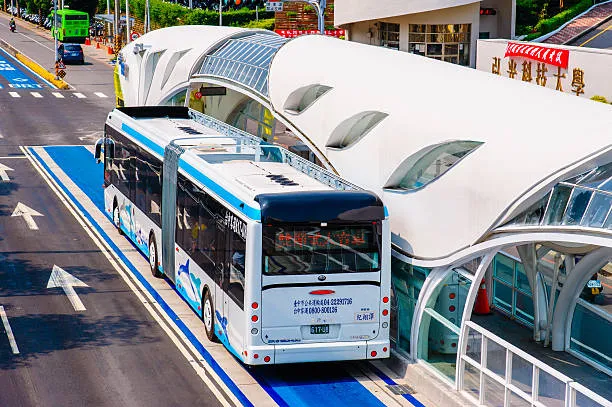- April 26, 2025
- No Comment
- 314
Driving Change: Vice President Shettima Backs Intelligent Transport System To End Nigeria’s Road Safety Nightmare
In a bold move to address Nigeria’s growing road safety crisis, Vice President KashimShettima has thrown his weight behind the…
In a bold move to address Nigeria’s growing road safety crisis, Vice President KashimShettima has thrown his weight behind the adoption of an Intelligent Transport System (ITS) — a tech-forward solution aimed at transforming the country’s chaotic and deadly road transport landscape.
At a high-level stakeholders’ engagement held in Abuja and themed “Intelligent Transport System,” the Vice President, represented by his Senior Special Assistant on Emergency Management, Mr. Mohammed Ahmed, issued a clarion call for urgent action, stating that the present state of Nigeria’s roads is “unacceptable.”
“Overloaded trucks, frequent road mishaps, and the tragic loss of lives — particularly among road law enforcement officers — are symptoms of a broken system. The Intelligent Transport System offers a pathway to safer, more efficient roads,” Shettima stated passionately. “We must advocate its implementation with urgency.”
The event, organised by the Chartered Institute of Transport Administration (CIoTA), brought together key stakeholders from across Nigeria’s transportation ecosystem, offering not just analysis but concrete steps toward modernization. And at the heart of the gathering was one shared vision: a future where Nigerian roads are smarter, safer, and governed by data-driven enforcement.
Vice President Shettima’s charge to CIoTA was not merely ceremonial. It was a challenge — a policy directive — aimed at crafting actionable, SMART (Specific, Measurable, Achievable, Realistic, Time-bound), and deliverable plans for the road transport sector. His statement reflects a deep understanding of how digital technology and systems thinking can disrupt Nigeria’s long-standing transport woes.

In response, CIoTA President, Prince Segun OchukoObayendo, FInstTA, used his welcome address to underline how CIoTA has taken that challenge to heart.
“This engagement was provoked by the Vice President’s call to action,” said Prince Obayendo. “The road transport sector has become an all-comers affair, with enforcement practices that are outdated and ineffective. ITS will change all that. With a robust vehicular database and real-time monitoring tools, we can finally reduce infractions and save lives.”
The event was a convergence of minds committed to rethinking road transport in Nigeria. From regulators to academics, the message was clear: technology is not a luxury, but a necessity.
The Federal Road Safety Corps (FRSC), represented by ACM Ibrahim Kudirat on behalf of Corps Marshal Shehu Mohammed, endorsed the call for ITS as a lifesaving intervention. Other notable attendees included. Kayode Opeifa, Managing Director of the Nigeria Railway Corporation, Engr. Gbenga Dairo, Commissioner of Transportation, Ogun State, Prof. Umar Adam Katsayal, Vice Chancellor, University of Transport, Daura, Dr. ObiomaNwaogbe, Special Adviser on Transportation to the Governor of Abia State, among others.

What is ITS? The Intelligent Transport System (ITS) refers to the integration of communication, control, and information processing technologies into transport infrastructure and vehicles to improve safety, mobility, and efficiency. ITS includes tools like GPS tracking, automated number plate recognition (ANPR), traffic signal control systems, and centralized vehicular databases.
Their goodwill messages reinforced a shared concern: Nigeria must evolve from analog-era enforcement to real-time, intelligent mobility management systems.
Dr. Joshua Odeleye, Director of the Transport Technology Center at NITT Zaria, laid out the practical pathways for integrating ITS within Nigeria’s unique transport terrain. Presentations from Hajia Nana-Aisha (former Executive Secretary of the Joint Tax Board), Mr. Auwal Mohammed (Head of ICT at the Directorate of Road Traffic Services), and ACM KD Gonji (Legal Adviser, FRSC) further illustrated the legal, operational, and fiscal dimensions of rolling out ITS nationwide.
Each expert emphasized that ITS is not just a tool for monitoring and enforcement, but a game-changer in policy planning, accident reduction, and road infrastructure management.
As Nigeria grapples with one of the highest rates of road fatalities in sub-Saharan Africa, this engagement signaled more than a policy shift — it marked a philosophical reawakening. For too long, the roads have been ruled by chaos and tragedy. Now, there’s a real opportunity to change the narrative.
Whether or not the Intelligent Transport System is swiftly implemented will depend on the strength of political will, inter-agency collaboration, and sustained advocacy from professional bodies like CIoTA.
But with the Vice President himself championing the cause, the momentum for safer, smarter roads in Nigeria has never been stronger.





